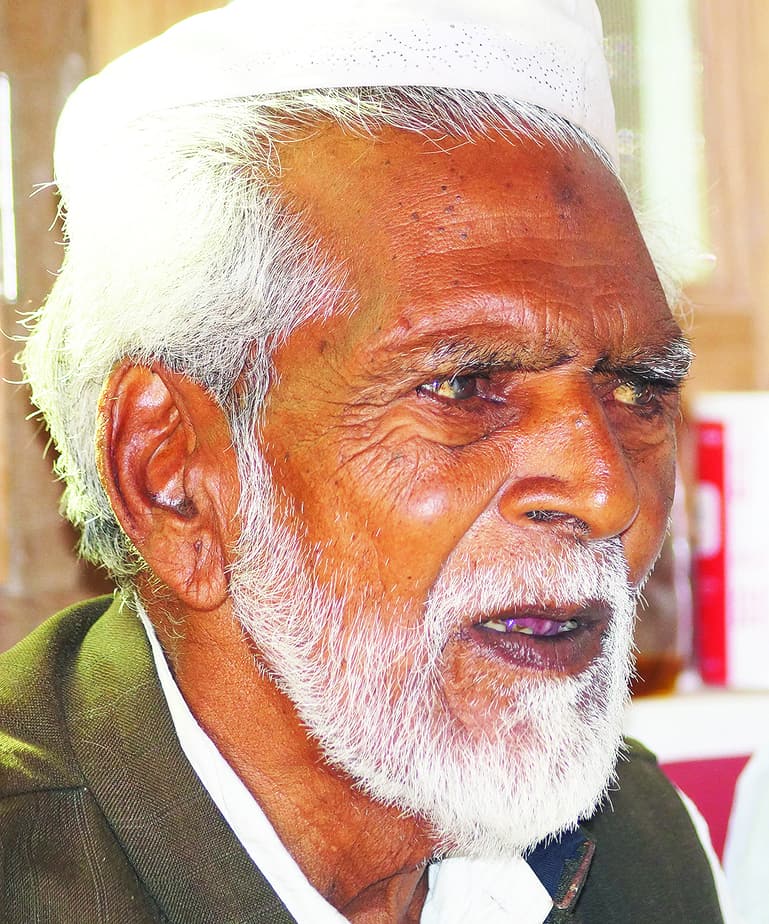
Murder of elderly people in Delhi is not a new phenomenon. It has been happening for decades and though Delhi Police claims to have taken remedial measures, the situation on the ground remains grim. Older people in Delhi, mostly couples or those who stay alone, are sitting ducks for criminals looking for easy targets.
Take the recent case of Manmohan Bansal, 60, lived with his wife Prema, also 60 and his mother Rama, 85, and two children, Nikhil and Kanika, who were travelling when a group of seven robbers, armed with pistols, barged into the house one early morning last week. They tied the three senior citizens up, beat them blue with iron rods, he before decamping with R20 lakh cash and valuable jewellery from their Preet Vihar residence. Bansal owns a hard ware business in Chawri Bazaar. Though three CCTVs was installed in the house but none of them was functional. All three miraculously survived the thrashing.
Usha Devi, 67, a resident of Gulmohar Enclave in South Delhi, was not so lucky. She was found dead with injuries on forehead inside her ransacked house on April 23.
Thus murders of elderly people continue despite Delhi Police claims to have taken necessary remedial measures. There’s the Senior Citizen Security Cell headed by a DCP level officer, who wasn’t available to talk despite repeated attempts. Instead, Patriot held a discussion with another senior-level functionary of the cell who’s not authorised to go on record but is herself well into her fifties.
She told Patriot that as many as 33,745 senior citizens were registered with the Senior Citizens Security Cell. A toll-free helpline number 1291 and a senior citizen app is also available on mobile play store for senior citizens. There’s also an SOS button on the app which if pressed, police will call back, and also be able to track the location of the caller through GPS — and, if necessary, reach the senior citizen in distress at the earliest. But there’s a limitation to this app as most of the senior citizens, particularly those in need of help, are not conversant with touch screen mobiles, the officer qualified.
There’s another anomaly, pointed out by the founder of Agewell Foundation Himanshu Rath. He says some of the seniors living alone deliberately do not get registered with the Security Cell for they are apprehensive of how neighbours will react to regular visits by the beat constable. This, according to them, has an announcement effect that they are alone and is actually counterproductive! Also, many of the senior citizens residing with their families don’t feel the need to register with
the Cell.
Rath estimates that out of around 16 lakh senior citizens living in Delhi, a large number live with their sons or daughters and consider themselves relatively safe. This explains the low enrollment with the Cell.
If less than 34,000 citizens are part of the Senior Senior Citizen Security Cell, let’s contrast it with the actual population. As per the 2011 census, there are 11,47,445 senior citizens living in Delhi. That means only around 3 per cent of people are registered with Senior Citizen Security Cell, which is a drop in the ocean.
Though the Cell is trying various ways to popularise the use of the app and encourage citizens to enroll in the cell and is regularly communicating with registered senior citizens, there has been little success since it was established in 2004. The cell holds regular events like the seminar at Siri Fort Auditorium on July 5. On International Elders Day, a mela (fete) was organised by the cell in every district and a registration drive was carried out along with free health check-up camps.
In addition, the Cell has directed all the police stations to inform them when they want verification of drivers, domestic help, and other staff employed by elderly people in their area of jurisdiction. Also, the Cell official informed, local beat constables have to make themselves available to senior citizens on a regular basis, to inquire about their welfare and for verification of domestic staff if any, as senior citizens are not required to appear in person to the police station. In addition, district-level meetings are organised by the Senior Citizen Security Cell every six months.
As recent cases show, also confirmed by the official of the Cell, most of the crimes against senior citizens are perpetrated on those not registered with the Cell. Only the rarest of rare cases of crime, less than 1 per cent, have happened against registered senior citizens, and almost all of them were not fatal. As per Delhi Police figures, 132 cases of crime against senior citizens were reported in 2017 and this year till June 18 only 50 cases were registered in Delhi.
Senior citizens in the capital want to be secure and peaceful. Delhi Police seems to be trying to ensure that.
Delhi hosted what organisers describe as the world’s first player auction in golf, launching ‘72…
An elderly woman recalls how her six-year-old granddaughter lay bleeding after a speeding car hit…
Municipal Corporation of Delhi plans a unified policy enabling RWAs to adopt and maintain parks…
A 17-year-old boy allegedly died by suicide after jumping before a moving train at Uttam…
Delhi High Court grants bail to 26-year-old Thar driver accused of mowing down two in…
Two Rohini men arrested for fatally stabbing one person and injuring another during a robbery…